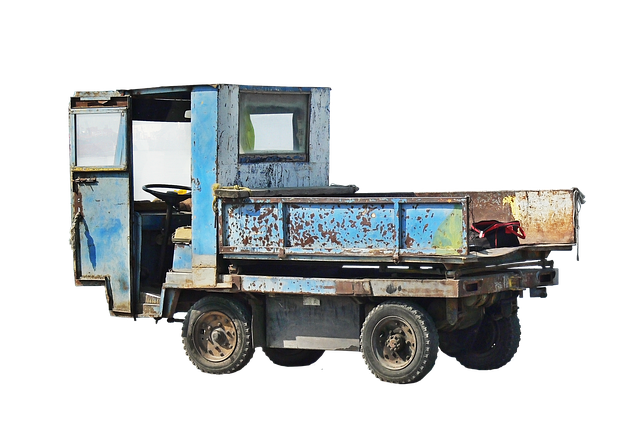Trucking businesses must stay compliant with federal and state regulations focusing on safety, maintenance, driver hours, and cargo security. Regular inspections, proper loading, and advanced tracking ensure adherence. Digital tools streamline safety checks and record-keeping, minimizing downtime. Comprehensive driver training and certification verify skills and knowledge of vehicle dynamics and safety protocols. Detailed logging and record-keeping, often digital, meet regulatory requirements and enhance operational efficiency. Staying informed about constant regulatory changes is crucial for compliance and maintaining a positive reputation in the dynamic trucking industry.
In the dynamic landscape of trucking, compliance is not just a best practice—it’s non-negotiable. This comprehensive guide navigates the essential elements of staying legal on the roads. From understanding stringent truck compliance requirements to implementing rigorous safety inspections and keeping meticulous records, each step ensures your operation adheres to industry standards. Stay ahead with regular driver training, embrace technological advancements, and remain informed about evolving regulations to keep your trucks on track and your business thriving.
- Understand Compliance Requirements for Trucks
- Conduct Regular Safety Inspections and Maintenance
- Ensure Driver Training and Certification
- Implement Effective Logging and Record-Keeping Practices
- Stay Updated with Industry Regulations and Changes
Understand Compliance Requirements for Trucks

Staying compliant is non-negotiable for any business operating trucks, as it ensures safety and maintains legal standards. When it comes to trucks, compliance requirements are multifaceted, encompassing both federal and state regulations. Key areas include vehicle maintenance, driver hours of service (HOS), and cargo security.
Trucking companies must regularly inspect and maintain their vehicles to meet safety standards. This involves ensuring proper tire condition, brake functionality, lighting systems, and more. Additionally, drivers must adhere to strict HOS rules, which dictate the maximum driving and resting time to prevent fatigue. Cargo security is another vital aspect, requiring proper loading, securing, and tracking to avoid theft or damage during transit.
Conduct Regular Safety Inspections and Maintenance

Regular safety inspections and maintenance are non-negotiable for keeping trucks in optimal condition. It’s a proactive approach that can prevent costly breakdowns and ensure the safety of drivers and other road users. These checks should cover all critical components, including brakes, tires, lights, and steering systems. Establishing a consistent maintenance schedule, ideally before each trip or at least monthly, allows for systematic oversight and quick resolution of any issues identified.
For fleet operators, implementing digital tools for tracking inspections can streamline the process. These technologies enable efficient record-keeping, facilitate predictive maintenance by identifying patterns, and provide real-time data for informed decision-making. By prioritizing regular safety inspections and leveraging technology, truck owners and operators can maintain high safety standards, minimize downtime, and enhance overall fleet performance.
Ensure Driver Training and Certification

In order to comply with regulations, especially for commercial trucking operations, ensuring proper driver training and certification is paramount. This involves comprehensive programs that cover both theoretical knowledge and practical driving skills. For trucks, this means understanding complex vehicle dynamics, safety protocols, and load securement techniques. Regular refreshers and updates on industry changes are also crucial, as the field continues to evolve with advancements in technology and safety standards.
Driver certification should include verification of their competence and experience. This includes holding valid licenses, passing required tests, and demonstrating proficiency in operating different types of trucks under various conditions. Reputable training institutions should provide detailed post-training assessments to ensure drivers are ready to handle the responsibilities associated with managing large vehicles and ensuring the safety of both themselves and others on the road.
Implement Effective Logging and Record-Keeping Practices

Implementing robust logging and record-keeping practices is a cornerstone of compliance for any operation involving trucks. This involves meticulously documenting every step of your truck-related activities, from maintenance schedules to fuel logs and driver hours. Digital systems are increasingly preferred due to their accuracy, accessibility, and ability to streamline the review process.
By maintaining detailed records, you not only ensure adherence to regulatory requirements but also gain valuable insights into operational efficiency. These records can serve as a powerful tool for identifying areas of improvement, troubleshooting issues, and demonstrating compliance during audits.
Stay Updated with Industry Regulations and Changes

Staying informed is crucial for any business, especially those involved in trucking operations. The transportation industry faces constant regulatory changes and updates, which can significantly impact daily practices and safety standards. It’s essential to have a system in place to monitor and stay abreast of these evolving rules, ensuring compliance from the get-go. By keeping up with industry news, regulations, and any changes in legislation, trucking companies can avoid costly penalties and maintain their reputation for integrity.
Regularly checking official government resources, industry publications, and reputable online platforms dedicated to transportation updates is a proactive step. These sources provide valuable insights into new rules, revisions, and interpretations that could affect truck operations. Whether it’s changes in cargo handling regulations or updated safety protocols, being proactive about knowledge ensures trucking businesses are one step ahead, fostering a culture of adherence to industry standards.
Complying with regulations for trucks is not just a legal requirement, but also a vital strategy for ensuring safety, efficiency, and sustainability in the transportation industry. By understanding compliance requirements, conducting regular inspections and maintenance, ensuring driver training, implementing effective logging practices, and staying updated with industry changes, trucking businesses can navigate the complex landscape of regulations while fostering a culture of responsible and proactive operations. These steps are essential to maintaining a competitive edge and contributing positively to the overall health of the trucking sector.
